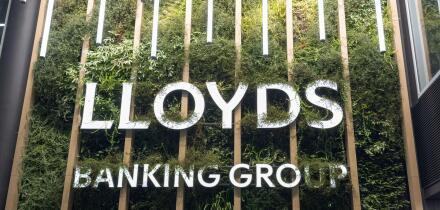
ING has a distinctive approach to sustainability. It’s an integral part of the bank’s decision making at every level and its capital markets bankers are chosen for their expertise in the field over experience in deal origination.
Hans Biemans, who leads ING’s sustainable markets team, has 20 years’ experience in sustainable finance.
“It is important that we advise in a consistent way, therefore our sustainable finance team provides training for other staff,” he says. “It means that the wider debt capital markets (DCM) group, relationship management and sales teams are versed in sustainability so they can, for example, quickly see opportunities for clients or potential improvement points in existing green and social bond frameworks.”
ING’s DCM bankers can also call on a wider socially responsible investments team and a champions network in a bank that has extensive experience as both an issuer of sustainable bonds, and a lender with sustainable goals.
ING issued its first green bond in 2015 and has returned several times since, most recently with a green tier two in June.
“How could we advise on green bonds if we had never issued one ourselves?” asks Mike Koerkemeier, head of FIG and of EMEA corporate DCM. “We can go out to clients and explain how we did it, not just to the treasury departments but to accountants, compliance officers, risk managers and talk their language.”
ING has also used Terra, an approach launched in 2018, to align its lending portfolio with the below-2 degrees warming scenario outlined in the Paris Agreement. The methodology underlying Terra was co-developed with the 2˚Investing Initiative (2DII), is open source, and has been adopted by nearly 20 other banks.
“We changed our own lending policies and that has been helpful in discussions with clients,” says Koerkemeier. “We’re not just a pure investment bank advising on a green bond framework and executing a trade.”
A key feature of ING’s approach to advising financial institutions on green capital markets is its ability to do more than simply put a framework together.
“We have helped issuers acquire the technical skills to analyse a loan portfolio and advised on how to make it more sustainable, from working with banks and real estate companies to refurbish properties, to providing technical assistance to make lending to the fisheries and shipping sectors more sustainable,” says Biemans.
“We also offer organisational and governance advice, and can help banks design sustainable product frameworks for their lending businesses.”
“We don’t just come in and pitch a green bond,” says Koerkemeier. “It’s not about just labelling the bonds. We really do want our clients to provide financing for a more sustainable world and help their borrowers in this important process.”
And when ING does advise on a green bond, it’s for the entire lifecycle. “We are there to guide the client through the process from A to Z, for instance to make sure the reporting is relevant for the issuer as well as for the investors,” explains Biemans.
Part of the value-added service that ING provides its clients during a deal allocation is an automated tool that shows how ‘green’ investors are: an important consideration for issuers that want to attract high quality ESG investors.
The ING approach is bringing rewards in Europe and further afield. ING has worked on sustainable bonds for banks in Turkey, Canada, Switzerland, the Middle East, Singapore, Korea and China.
“We have often been the sole structurer on our deals, and I think we get that role because we pitch the entire service from pre-care to after-care,” says Koerkemeier. “The ESG topic is not new but a lot of our clients are still building up internally and want to rely on a bank with the resources to provide a large team with relevant knowledge and expertise.”
Financial institution clients’ need for ESG experience is only going to grow. For a start, issuers will need help navigating the new EU taxonomy regulation, says Biemans.
“We hope the advisory and service propositions we bring to our clients are valued and this award is testament that they appreciate the work we do,” says Koerkemeier. “We are grateful for that trust.”






